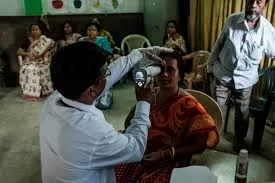Colombo, Sri Lanka – In a decisive move to combat the rising burden of diabetes, health experts and officials from across the WHO South-East Asia Region adopted the Colombo Call to Action, a framework to strengthen prevention and control measures for diabetes. The agreement was the centerpiece of a two-day Regional Commemoration of World Diabetes Day 2024, held under the theme “Breaking Barriers, Bridging Gaps.”
The Colombo Call to Action outlines strategic priorities aligned with the WHO Global Diabetes Compact, focusing on six pillars: uniting efforts, integrating care, innovating approaches, improving treatment access, enhancing tracking mechanisms, and educating communities. The initiative aims to curb type 2 diabetes by addressing risk factors like obesity, unhealthy diets, and physical inactivity, while ensuring equitable access to high-quality treatment for those living with diabetes.
A Growing Burden
With over 482,000 diabetes-related deaths annually in the region, diabetes remains a significant public health challenge. Complications such as blindness, kidney failure, heart attacks, strokes, and amputations inflict severe hardships on individuals and families, straining health systems and economies.
“Bridging service gaps to ensure timely access to diabetes care can save lives,” said Saima Wazed, Regional Director of WHO South-East Asia. “Care services need to be equitable, comprehensive, accessible, and affordable.”
Global and Regional Commitments
The event, organized by WHO in collaboration with Sri Lanka’s Ministry of Health, brought together over 100 participants, including government representatives, international experts, and development partners. WHO Director-General Dr. Tedros Adhanom Ghebreyesus, in a video address, emphasized the urgency of action. “Over the last three decades, the number of people living with diabetes has quadrupled, now surpassing 800 million globally. More than half do not receive treatment. We must intensify efforts to meet global targets and ensure better prevention, diagnosis, and management of diabetes,” he stated.
Dr. Hansaka Wijemuni, Sri Lanka’s Deputy Minister of Health, highlighted the country’s efforts in tackling noncommunicable diseases through initiatives like SEAHEARTS. “We know we can do more through advocacy, health promotion, and ensuring universal access to quality medicines and diagnostics,” he said.
Priority Actions
The Colombo Call to Action identifies critical measures, including:
- Strengthening primary healthcare systems for diabetes prevention and management.
- Expanding access to essential medicines, including insulin, and diagnostics.
- Integrating diabetes care into broader health programs.
- Promoting healthy lifestyle interventions through policy and education.
- Setting national diabetes coverage targets to be achieved by 2030.
Progress and Challenges
Significant strides have been made, with over 60 million people in the region placed on protocol-based management for diabetes and hypertension by mid-2024. The target is to reach 100 million by 2025. However, gaps persist, particularly for children and adolescents with type 1 diabetes and the growing number of young people diagnosed with type 2 diabetes.
Dr. PG Mahipala, Sri Lanka’s Secretary of Health, and other experts reiterated the need for investments in primary healthcare systems, standard treatment protocols, and skilled professionals to meet the increasing demand for diabetes care.
A Call for Collective Action
“The path to overcome barriers and care gaps is long and challenging but achievable,” said Regional Director Saima Wazed. “It is a shared responsibility of governments, healthcare providers, and communities to prevent diabetes and improve the quality of life for those living with it. Let us come together to ensure no one is left behind.”
The Colombo Call to Action marks a critical step forward in uniting countries to tackle the diabetes epidemic, laying the groundwork for a healthier and more equitable future.












